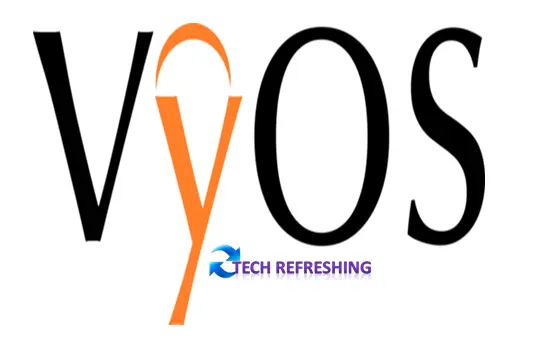
VyOS is constructed on top of Debian Linux and has a modular design that permits customization to meet the unique requirements of organizations across various sizes and industries. This versatility and flexibility result in a comprehensive set of networking capabilities, including routing, firewalling, VPN, NAT and Quality of Service (QoS).
VyOS stands out for its user-friendly design. Its unified command-line interface offers a streamlined and easily navigable way for network administrators to manage their networks, making it straightforward to implement, configure and maintain. With extensive documentation and a vibrant community of developers and users, VyOS is an excellent choice for organizations seeking a dependable network operating system.
In general, VyOS offers a safe, adaptable and affordable option for businesses wishing to control their network equipment. VyOS is a fantastic substitute for proprietary network operating systems because to its extensive feature set, usability and strong community support.
Purpose of the Blog Post
The purpose of this blog post is to introduce readers to VyOS, explain its concept and significance and contrast it with other network operating systems. This information will aid IT experts, network administrators and businesses in comprehending the key advantages of VyOS and why they should consider incorporating it into their networks.
What is VyOS?

VyOS is a Linux-based network operating system that provides a unified command-line interface for managing network devices. It supports a wide range of network protocols and services, including routing, firewall, VPN, network address translation (NAT) and quality of service (QoS).
History of VyOS

VyOS is a Linux-based open-source network operating system that was first released in 2013.It was developed as a fork of the Vyatta firewall, router, and VPN platform, which was made by the same-named firm originally.
Vyatta was acquired by American networking company Brocade Communications Systems in 2012 and VyOS was created by a group of former Vyatta developers and users who were concerned about the future of the Vyatta platform under Brocade’s ownership.
The objective of VyOS was to offer a dependable and stable open-source network operating system that would cater to the needs of organizations of varying sizes. It was crafted to be adaptable, capable of scaling, and user-friendly, and over time, it has gained popularity as a preferable alternative to proprietary network operating systems such as Cisco IOS and Juniper JUNOS.
Today, VyOS is used by organizations around the world, from small businesses to large enterprise networks and it is widely recognized as one of the best open-source network operating systems available.
Key Features and Benefits of VyOS

The key features of VyOS include:
- Routing: VyOS is a great option for enterprises needing extensive routing capabilities because it supports a broad variety of routing protocols, including as BGP, OSPF, and RIP.
- Firewall: The platform comes with a strong firewall that is simple to set up and secures the network by limiting access to network resources.
- VPN: VyOS supports PPTP, L2TP and IPSec among other VPN protocols, making it simple to create safe, encrypted connections to distant networks.
- Network Address Translation (NAT): The platform comes with sophisticated NAT features that let administrators easily control network address translations for their network devices.
- Quality of Service (QoS): VyOS has extensive QoS features that enable network traffic to be prioritised according to a variety of factors, including bandwidth needs, application type, and more.
- Command-line Interface (CLI): The platform includes a unified command-line interface that provides a consistent and intuitive way for administrators to manage their networks.
- Modular Architecture: VyOS’s modular architecture makes it highly adaptable and enables users to add or remove features as necessary to meet their unique needs.
- Scalability: The platform is created with high scalability in mind, making it a great option for businesses that need a flexible and adaptable network infrastructure.
- Community Support: VyOS has a strong community of developers and users who provide extensive documentation, support and development resources to help users get the most out of the platform.
VyOS is a complete network operating system that offers a variety of features and functionalities, making it a flexible and affordable option for managing network devices. VyOS has the capabilities, usability and support you need to manage your network whether you are the owner of a small business or the boss of a huge corporation.
The benefits of using VyOS :
- Cost Savings: Since VyOS is open-source software, it is free to download and use. Comparatively speaking, proprietary network operating systems can be pricey to buy and operate. Organizations can use VyOS to reduce the cost of their network infrastructure while still gaining the features and functionalities they require.
- Simplicity and Ease of Use: With a unified command-line interface that makes it simple for administrators to administer their networks, VyOS is intended to be straightforward and easy to use. Administrators’ learning curves are shortened by this simplicity, which also makes it simpler to get started right away.
- Stability and dependability: VyOS has a solid track record and is a reliable platform that has been created to cater to the requirements of businesses of all sizes. VyOS is a dependable option for controlling your network infrastructure because to its modular architecture, cutting-edge security features, and compatibility for a variety of network protocols.
- Flexibility and Customization: VyOS is very flexible and extremely configurable thanks to its modular architecture, which enables businesses to add or remove functionalities as necessary to meet their particular needs. Due to its adaptability, the platform is simple to modify to meet the shifting requirements of your network.
- Scalability: Because VyOS is built to be very scalable, it is the perfect option for businesses that need a flexible and adaptive network infrastructure. VyOS can scale to suit your demands whether your network is expanding or changing.
- Enhanced Security: VyOS offers a safe platform for controlling your network thanks to its sophisticated firewall, VPN, and NAT features. Organizations may strengthen the security of their network infrastructure and safeguard critical data and network resources by utilising VyOS.
- Community Assistance: VyOS boasts a thriving community of developers and users who offer comprehensive documentation, technical support, and development resources to maximize the platform’s potential. Should you need assistance with a particular problem or simply seek to learn more about the platform, the VyOS community is readily accessible to offer support and direction.
VyOS delivers numerous advantages to organizations of varying sizes, encompassing cost-effectiveness, enhanced security, scalability, and user-friendliness. Irrespective of whether you run a small business or head a massive enterprise, VyOS offers the features, customization options, and community support that enable you to confidently manage your network.
Use Cases of VyOS

VyOS has a wide range of use cases, including:
- Route Management: VyOS offers sophisticated routing functionalities, including support for static routing, dynamic routing protocols (such as OSPF and BGP), and routing based on policies. This makes it a suitable option for organizations that require efficient management of extensive and intricate networks.
- Firewall: VyOS comes with a strong firewall that you can use to defend your network against threats and safeguard important data. Stateful packet inspection is only one of the cutting-edge capabilities that provide VyOS’s firewall software a strong foundation for use in any size company.
- VPN: PPTP, L2TP and IPSec are just a few of the many VPN protocols that VyOS supports. For businesses that need to securely connect remote locations or access network resources from mobile devices, it is the perfect answer.
- Address Translation (NAT): VyOS offers advanced NAT capabilities, enabling organizations to translate private IP addresses to public IP addresses. This simplifies connecting private networks to the internet and enhances security by concealing the private IP addresses of network devices.
- Quality of Service (QoS): VyOS provides advanced QoS capabilities, allowing organizations to prioritize network traffic and ensure that critical applications receive the bandwidth they need. This makes it an ideal solution for organizations that need to manage bandwidth-intensive applications, such as video conferencing or large file transfers.
- Traffic Distribution: VyOS delivers load balancing functionalities, allowing organizations to distribute network traffic across multiple network devices for enhanced performance and dependability. This makes it a suitable solution for organizations that require scaling their network infrastructure to accommodate increasing demands.
- Network Performance Tracking: VyOS offers sophisticated network monitoring and reporting capabilities, allowing administrators to monitor network performance and detect potential problems with ease. Equipped with real-time monitoring and reporting features, VyOS provides a complete solution for managing and keeping track of your network infrastructure.
VyOS is versatile, with a plethora of applications, ranging from routing and firewall to VPN and network performance tracking. It caters to organizations of all sizes, providing the necessary features, adaptability, and support to effectively manage their network.
Why You Should Care About VyOS
Cost savings compared to proprietary network operating systems
The key advantage of utilizing VyOS is the cost-effectiveness in comparison to other proprietary network operating systems. As VyOS is open-source, it is free to download and use. This also gives users the ability to make changes and tailor the software to fit their requirements. This can result in substantial savings on network infrastructure and maintenance costs as opposed to proprietary systems.
Flexibility and customization options
VyOS is highly modular, allowing administrators to add or remove features as needed, without having to worry about compatibility issues. This flexibility and customization options make VyOS a suitable choice for organizations that have unique network requirements.
Scalability for growing networks
VyOS is a scalable solution that can accommodate the growing needs of organizations as they expand. This makes it a budget-friendly option for businesses that anticipate rapid growth in the future.
Improved security
VyOS boasts robust security measures, featuring firewalls, VPNs and NAT capabilities, ensuring the protection of networks from potential threats and unauthorized access to confidential data. Furthermore, being open source, VyOS benefits from the immediate attention of the community in addressing security vulnerabilities, providing an added layer of protection for users.
How VyOS Differs from Other Network Operating Systems
VyOS is an open-source network operating system that differs from other popular network operating systems in several key ways.
- Open-Source: Unlike proprietary network operating systems such as Cisco IOS and Juniper JUNOS, VyOS is open-source, meaning that the source code is publicly available for anyone to use, modify and distribute. This allows for a more transparent and flexible development process, as well as a lower cost of ownership.
- Routing Engine: Routing Engine: VyOS features a versatile design that leverages a modular architecture, providing ample customization and scalability options. Its routing engine, such as Quagga or FRR, enables the effective management of a variety of routing protocols, including BGP, OSPF and RIP, thus supporting an extensive range of routing protocols.
- CLI-Based: Unlike graphical user interface (GUI)-based network operating systems, VyOS is completely CLI-based, making it easier to automate tasks and manage networks at scale.
- Virtualization Support: VyOS can be run as a virtual machine (VM) on top of a hypervisor, such as VMware or KVM, making it possible to create and manage virtual networks within a single physical network.
- Interoperability: VyOS supports a wide range of network hardware and can be integrated with other network operating systems, making it possible to manage mixed-vendor networks with ease.
- Cost: VyOS is free and open-source, making it a cost-effective alternative to proprietary network operating systems, which often come with high licensing fees.
VyOS offers a number of unique features and capabilities that differentiate it from other network operating systems. Its open-source nature, modular architecture, CLI-based interface, virtualization support, interoperability and low cost make it an attractive option for organizations looking for a flexible and cost-effective network operating system.
Conclusion
VyOS is an open-source network operating system that offers a wide range of features and capabilities, including routing, firewall, VPN, NAT, and QoS. The benefits of using VyOS include cost savings compared to proprietary systems, flexibility and customization options, scalability for growing networks, and improved security. VyOS also differs from other network operating systems in terms of cost, features and capabilities, and community and support.
Final Thoughts and Recommendations
VyOS is a great option to consider if you’re in search of an economical, versatile and secure network operating system. With a strong user and developer community and a wide range of features, VyOS serves as an ideal choice for small to medium-sized businesses, enterprises, service providers and data centers. Give VyOS a chance to showcase its capabilities and experience the advantages of this powerful network operating system yourself.




